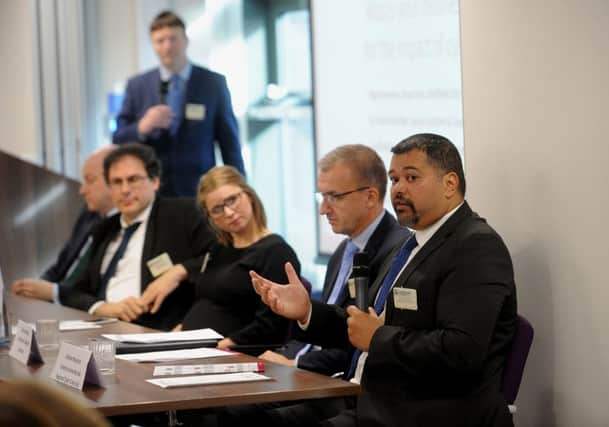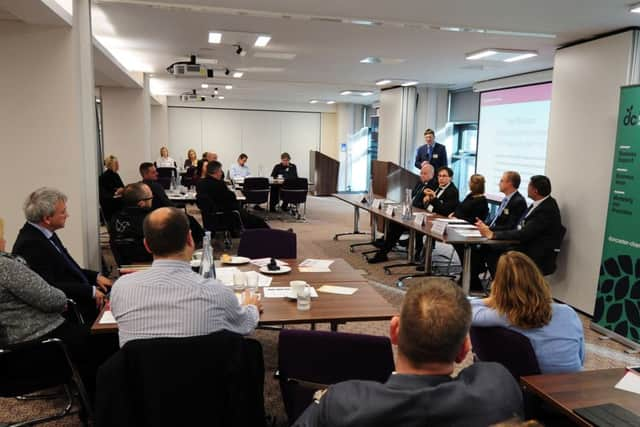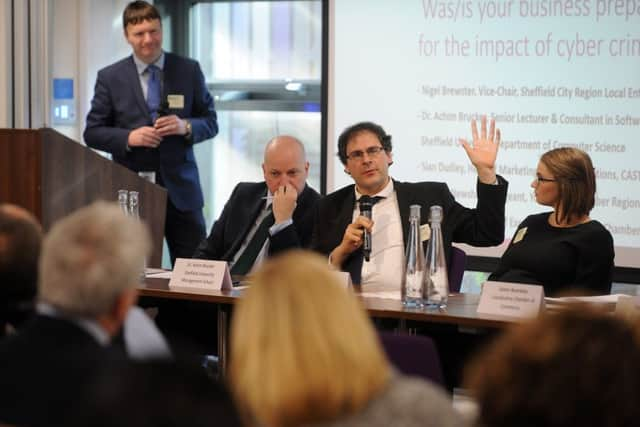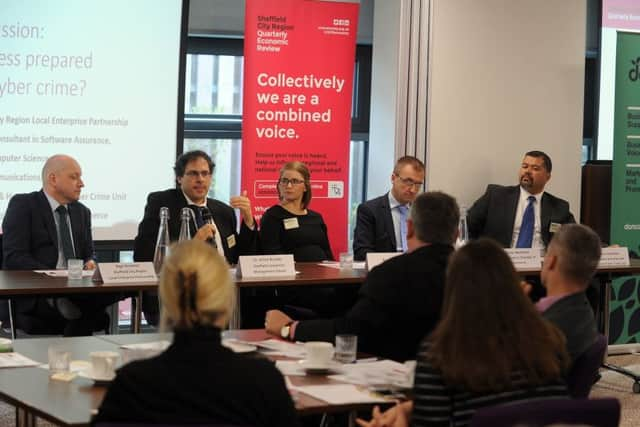'˜Cyber criminals can destroy firms who become complacent'


The rising cost of cyber crime was placed under the spotlight at the Sheffield City Region Quarterly Economic Review breakfast briefing, which was held in front of 70 business leaders at Inox Dine in Sheffield. The keynote speaker was Sergeant Shelton Newsham of the Yorkshire & Humber Regional Cyber Crime Unit, who described how firms could protect themselves from cyber attacks.
Speaking afterwards, Mr Newsham said: “You can reduce the risk by carrying out simple measures; make sure your staff are trained by having a robust training policy. You must also follow your policies and procedures. There’s no point in having an exit policy if you don’t follow it.”
Advertisement
Hide AdAdvertisement
Hide AdMany cyber attacks are carried out by insiders, Mr Newsham warned. Firms must also ensure their supply chains are well prepared to fight off cyber criminals


He said: “Supply chains can go under the radar and people don’t appreciate they are exposing themselves to risk. It’s crucial that whoever joins your supply chain has the same rigorous cyber security.
“Cyber crime is a global crime, it’s not necessarily targeting SMEs (small and medium-sized enterprises) in a certain location. They are targeting organisations worldwide. What we need to get across to SMEs is that you are just as much at risk of being a victim as a larger organisation.”
Complacency could have terrible consequences for any organisation, he added.
Advertisement
Hide AdAdvertisement
Hide Ad“A business could be here one day and gone tomorrow. There is a business within this region that didn’t follow an exit policy. One person went back into the business (after leaving it) and deleted everything, including all the orders, and then left the country.


“There were 80 employees in that business. There are no longer 80 employees at that business. It is that important. Your internal threat is your biggest threat.”
The latest quarterly survey for the Sheffield City Region found that around 15 per cent of respondents said their business had been affected by cyber crime over the last year. More than half of all the survey’s respondents believed they were knowledgeable or well informed about the best ways of protecting their business from cyber crime.
Mr Newsham added: “There is a big issue with under-reporting of cyber crime.”
Advertisement
Hide AdAdvertisement
Hide AdStudies also suggest it can sometimes take months before firms realise their security has been compromised.


Mr Newsham said: “We’ve been part of operations which have resulted in notifying victims that they have been subject to a breach. If you don’t look and check for a breach sometimes you don’t find it. “
The survey concluded that the Sheffield City Region had a “steady if somewhat subdued period” over the third quarter. Some respondents said they were concerned about the impact of Brexit and exchange rates on their business. However, sales balances held up among manufacturing and services firms.
The findings of the Sheffield City Region Quarterly Economic Review are used to influence regional and national policymakers.
Advertisement
Hide AdAdvertisement
Hide AdThe event included a presentation about the findings of the survey from Dr David Littlewood of Sheffield University Management School. It also included a panel debate about cyber security, which was chaired by Greg Wright, the deputy business editor of The Yorkshire Post. Apart from Shelton Newsham, the debate also featured Nigel Brewster, the vice-chairman of the Sheffield City Region Local Enterprise Partnership, Dr Achim Brucker of Sheffield University’s department of computer science, Sian Dudley, head of marketing and communications at CAST and Simon Beardsley the chief executive of Lincolnshire Chamber of Commerce.